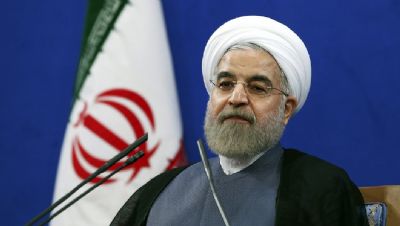"The Islamic Republic of Iran has demonstrated a long pattern of obstruction regarding inquiries and investigations into its nuclear activities, and that pattern persists more than two years after the conclusion of a landmark nuclear agreement between Iran and six world powers.
The conclusion of that agreement in 2015 was to some extent dependent upon the neglect of certain controversial issues, including access to Iranian military sites, where the regime apparently carried out research and development related to weaponization aspects of the country's nuclear program. The Joint Comprehensive Plan of Action effectively skirted this issue by making it theoretically possible for the International Atomic Energy Agency to ask for and receive access to military sites, but only following a month-long process during which the Islamic Republic could work to erase evidence of past activities.
This is exactly what happened at the highly suspect Parchin military base, from which the IAEA obtained soil samples that still showed the presence of some nuclear material after satellite imagery showed the site being partially demolished and sanitized. Despite this fact, the IAEA closed the file on the past military dimensions of the Iranian nuclear program so that the JCPOA could go forward toward implementation.
This and other instances of Iranian deception and international neglect were the focus of a recent report published by the International Committee In Search of Justice (ISJ), the non-profit NGO that I head up in Brussels. The report drew upon public information and intelligence gathered by the People's Mojahedin Organization of Iran (PMOI/MEK), the main Iranian opposition group with a solid record of exposing information about the regime´s nuclear project. The new information identifies a much broader pattern of behaviors going far beyond well-publicized issues like Parchin.
But even without this additional intelligence, the Parchin situation and the Iranian regime's repeated insistence that military sites are simply off limits to international inspectors should be enough to demonstrate to the world that the JCPOA has likely not halted Iran's nuclear activities, much less convinced the regime to cooperate with the international community..."
September 27, 2017
The world must stop ignoring Iran's pattern of obstructing nuclear inspections

President of Iran Hassan Rouhani (File photo)
Date
September 27, 2017
Title
The world must stop ignoring Iran’s pattern of obstructing nuclear inspections, The Washington Examiner
Author(s)
Alejo Vidal-Quadras
Original Source
